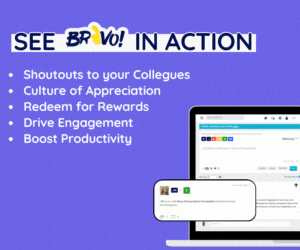
Employee rewards are an excellent way to improve your employees’ productivity, team spirit, and satisfaction with their jobs.
Most bosses really want their employees to be happy. After all, contented people are more productive, and contented employees contribute to improved morale.
When employee morale is good, turnover is minimal, and the company has a better chance of succeeding and meeting revenue goals.
Employees that are pleased are at least 12 percent more productive, according to research.
What exactly does this have to do with rewards?
Rewarding staff is a crucial element of keeping them happy and productive.
There is a strong link between employee happiness and incentives, with 86 percent of employees reporting that being acknowledged at work makes them feel better and prouder, and 85 percent reporting that they are happier with their positions.
Why Are Rewards Important To The Employees?

Employee recognition is critical to a company’s culture, and recognizing employees for their efforts provides a lot of advantages for both sides.
Showing your employees that you value them may boost productivity, foster teamwork, and even help you attract brilliant new hires.
Simply said, “People will always work more when they know they are appreciated,” goes the saying, and research backs it up.
According to one poll, 79 percent of employees believe that recognition motivates them to work more, and 78 percent believe that getting rewarded makes them more productive.
Indeed, as more Millennials and Generation Z workers join the job, the use of a reward system to boost motivation is becoming increasingly important. These younger workers desire not only fair pay and benefits but also meaningful and gratifying employment.
Recognition for a job well done, or more precisely, regular praise and prizes for their efforts, is part of what makes work more rewarding.
Indeed, Millennials regard incentives as critical to their job satisfaction, implying that businesses must implement reward and recognition programs into their organizations if they want to recruit and keep younger employees.
Do Rewards Help In Enhancing Employee’s Performance?

Employees should be recognized for their efforts because it provides a clear message to the employees that what they are doing matters.
Employees that are motivated and happy make a substantial impact on the bottom line. Companies that have rewarded workers generate two-and-a-half to three times more revenue than those that don’t.
Employee rewards also boost profitability, with organizations with engaged staff reporting a nearly one-third rise in profits.
Clearly, there is a return on investment associated with keeping people happy at work.
What Are The Advantages And Disadvantages Of Rewards?
It’s evident that rewarding employees isn’t only about boosting their ego; it also provides a slew of advantages for companies.
No one likes to feel undervalued at work. Therefore, it’s critical that all employees get recognized for their efforts.
There are several methods to show your employees that you care, from culinary lessons to a simple thank you card.
Moreover, to list down the advantages and disadvantages of employee rewards, the following are a few of them.

Advantages:
- Employees become happy
- Turnover rate falls
- Trust in employers increases
- The staff gets more productive
- Customer satisfaction increases
Disadvantages:
- The added cost of rewards
- Some employees might still not perform
- Not all reward strategies work
What Is The Negative Effect Of Giving Rewards To Employees?

Why are so many employee rewards unsuccessful if paying employees has such a tremendous influence on motivation?
Unfortunately, many employee incentive programs focus on the wrong things and fail to get to the heart of what motivates individuals to keep going.
Employee recognition and reward programs at many firms are centered on a significant event, generally conducted quarterly or yearly, when people are acknowledged for their accomplishments with a plaque or trophy as well as a bonus check.
Although workers like being acknowledged for their efforts, these events seldom result in significant gains in engagement, and most employees aren’t focused on seeking those awards as they go about their days.
More so, in a more extreme situation, these bonuses can cause a sense of envy and unhealthy competition.
Read More: 6 Reasons Why We All Are Addicted To Employee Rewards
Forget Improving Employee Rewards; Work On These First!

Employee incentives are offered by a variety of managers and business owners as a method to recognize their excellent work or to boost their motivation and productivity.
Cash bonuses and other gifts are used by some to give these incentives. Unfortunately, if certain downsides aren’t considered, utilizing presents to reward staff might backfire.
You can’t improve your employee rewards if you are lacking these 3 crucial prerequisites: employee recognition, motivation, and loyalty. Continue reading to find out more:
1. Employee Recognition

Giving your employees rewards will not matter if they don’t feel like you recognize their efforts and hard work.
Therefore, you need to demonstrate on a daily basis that you value and appreciate your employees.
This will ultimately lead to higher employee satisfaction! And satisfied employees are on average 12% more productive than their unhappy colleagues (Forbes, 2017)!
In addition, when a manager thanks their employees for their efforts, they encourage a sense of mutual trust. In fact, when employees feel like their work is appreciated by their managers, this leads to a deeper connection to leadership.
2. Employee Motivation

As a manager, how often do you witness a new employee start working for you, all excited and ready to take on the world, and then their motivation gradually but steadily declines over time?
To avoid this, you need to make sure that they are engaged with their tasks.
When your employees are disengaged, this may lead to lower productivity, higher employee turnover, more mistakes, days off work, and frustration.
Therefore, open up the conversation with your employees and ask them how satisfied they are with the jobs and working conditions.
Take their feedback seriously and implement any changes which might lead to higher employee motivation. After all, your employees can be your biggest asset, but only if you let them!
3. Employee Loyalty

Finally, employee loyalty is something that simply cannot be bought with rewards. Therefore, forget about improving your employee rewards if you don’t have strong employee loyalty.
Why? Because hiring and training a new employee can cost up to $4,129 and up to 42 days with completely lost or strongly diminished productivity (Forbes, 2017). You can easily spare yourself those costs by working on your employee loyalty.
Furthermore, according to Forbes, one of the main reasons behind employees switching companies or careers is that they felt like they weren’t respected enough in their workplace and lacked autonomy.
To avoid this, make sure that you are open and honest with your employees. Instead of micromanaging, learn how to delegate tasks and build long-lasting trust with your staff.
Conclusion
In conclusion, employee rewards should only come after working hard on improving your employee recognition, motivation, and loyalty.
Only then will you have the perfect conditions to implement a reward system and take your company to the next level.
Moreover, a managed employee rewards system like BRAVO can provide significant value in this regard. Click here to book a demo with one of the BRAVO experts today.






